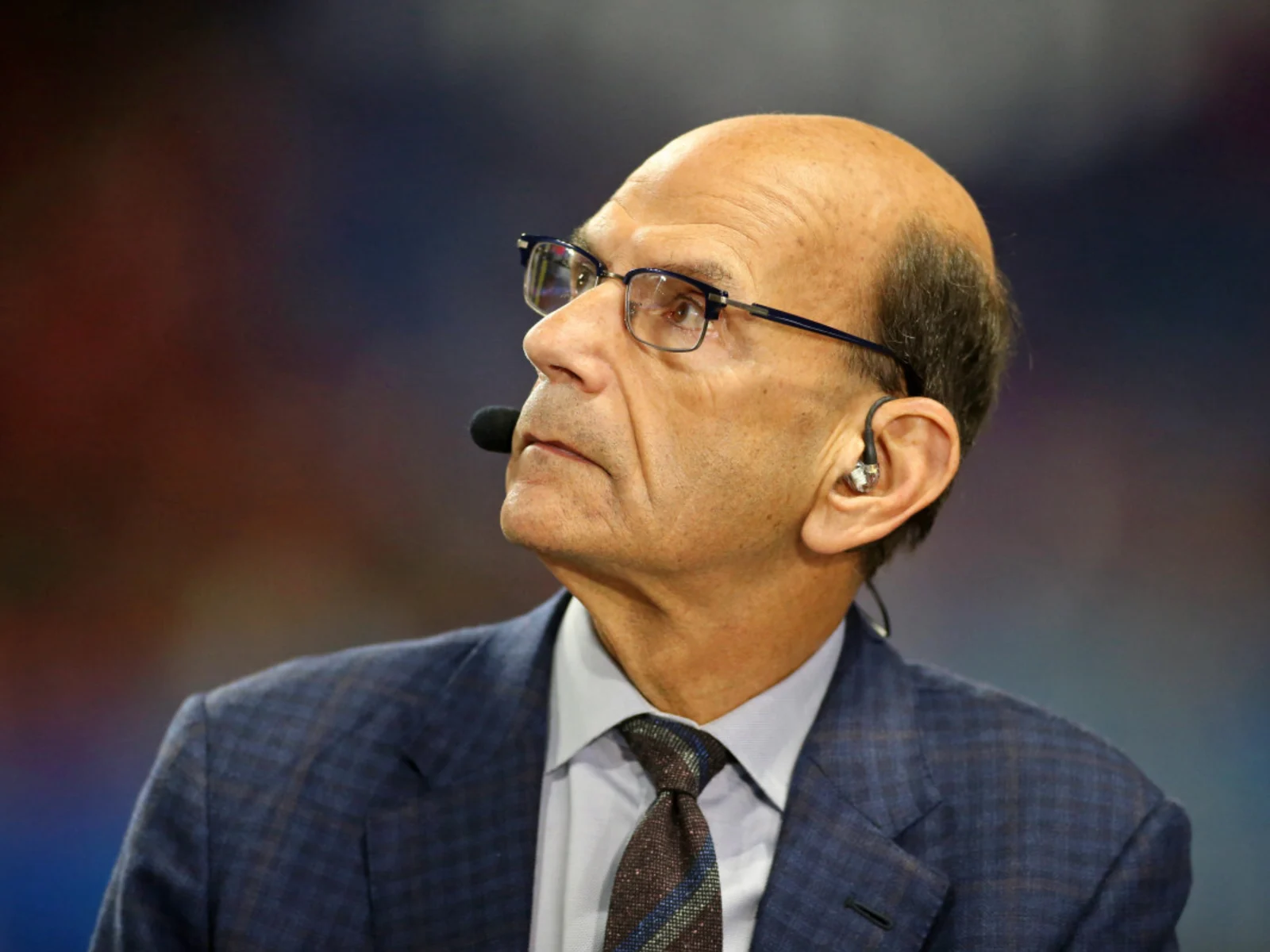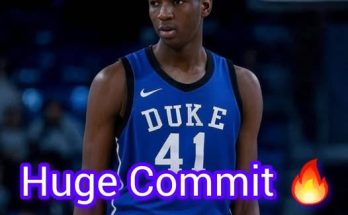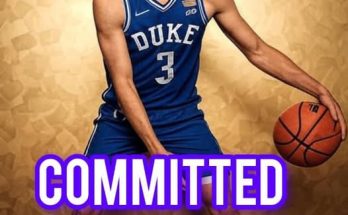Paul Finebaum, the ever-outspoken voice of SEC football, has once again ignited a firestorm with his latest prediction—this time targeting one of the most scrutinized coaching chairs in the South. With the 2025 season looming and pressure mounting across the conference, Finebaum didn’t hold back during a recent appearance on ESPN, where he boldly named the SEC coach he believes is on the hottest seat in college football. In a conference where expectations are sky-high and patience is paper-thin, Finebaum’s comments were not just headline fodder—they were a siren warning of what could soon be an inevitable coaching shake-up if the losses start piling up again this fall.
According to Finebaum, all eyes should be on Billy Napier at Florida. Despite his promising arrival in Gainesville and a reputation as a detail-oriented program builder, Napier’s tenure has yet to deliver the kind of results that appease the Gator faithful. Finebaum believes that another disappointing season could be the final straw for the former Louisiana head coach, whose SEC record has fallen short of expectations amid growing unrest among fans and boosters. “It’s not personal,” Finebaum said. “It’s just business in the SEC. If you don’t win—and win now—you’re gone.”
Napier arrived at Florida in 2022 with hopes of restoring the Gators to the elite ranks of college football. His résumé featured success at the Group of Five level, and his recruiting chops seemed to promise a bright future. But after back-to-back underwhelming seasons, including losing records and missed bowl opportunities, the clock is ticking louder than ever in Gainesville. Finebaum’s comments reflect a sentiment many in the SEC community have quietly echoed: Florida can’t afford mediocrity, especially not in an era where rivals like Georgia, Alabama, and LSU continue to raise the bar.
The SEC is a coaching crucible unlike any other. The moment a coach loses momentum, the vultures start to circle. Finebaum’s statement wasn’t just about Napier; it was a reminder that in this league, no amount of potential or past promise can protect a coach from the fallout of unmet expectations. The television deals are bigger, the NIL stakes are higher, and fanbases demand championships. Anything less, especially at a blue-blood program like Florida, is considered failure.
Sources close to the Florida program have suggested that the administration is aware of the pressure but is hoping for a strong turnaround in 2025. Napier has made some notable staff adjustments and secured several key transfers in the portal, aiming to shore up a roster that struggled with consistency and depth. But the upcoming schedule is brutal, and the margin for error is razor-thin. With showdowns against Georgia, LSU, and Texas looming, Napier will have to deliver wins—and quickly.
Finebaum emphasized that the issue isn’t a lack of effort or intelligence. “Billy Napier’s a smart guy,” he said. “He knows football. But the question isn’t whether he understands the game. The question is whether he can survive the pressure that comes with being the head coach at Florida. That’s a whole different beast.” In the SEC, perception matters as much as performance. Right now, the perception is that Florida is treading water while its competitors surge forward.
Napier’s recruiting classes have shown promise, and his organizational approach has earned praise behind the scenes. But Florida’s fanbase isn’t known for patience. After the ups and downs of the post-Urban Meyer era—including stints by Will Muschamp, Jim McElwain, and Dan Mullen—fans are desperate for a steady, winning identity. Many hoped Napier would be the one to restore that identity. But to date, the results have been uneven, and Finebaum’s comments reflect the rising skepticism surrounding Napier’s tenure.
Other names have surfaced in hot seat conversations—such as Sam Pittman at Arkansas or Eli Drinkwitz at Missouri—but Finebaum was deliberate in singling out Napier. That choice speaks volumes. Florida is a storied program with immense resources and one of the most passionate fanbases in the country. The standard is championships, not rebuilding. The Gators haven’t won the SEC since 2008, and that drought has worn thin on those invested in the program’s legacy.
Finebaum’s take has already sparked debate across sports radio and social media. Some fans agree that the time is running out for Napier, citing the lack of offensive explosiveness and an inability to win big games. Others believe he deserves more time to implement his system fully, especially given the changing landscape of college football and the growing influence of NIL and the transfer portal. Still, in the SEC, time is a luxury rarely afforded, especially when high-profile jobs open and elite coaching talent becomes available.
There’s also the financial factor. Florida would owe Napier a substantial buyout if they were to move on after 2025, but money has rarely stopped SEC schools from making bold coaching changes. Just look at the recent trends: programs are increasingly willing to pay massive sums to part ways with underperforming coaches, knowing that the cost of stagnation can be even greater in the long run. Boosters and big-money donors want results, and they want them now.
Napier, for his part, has remained publicly optimistic. He’s spoken confidently about the direction of the program and insists that Florida is closer than it appears to breaking through. There are reasons to believe him. The 2024 recruiting class finished strong, and there’s a renewed emphasis on fundamentals and player development. But optimism only goes so far. Come September, it’s all about wins.
The good news for Napier is that he still controls his destiny. A fast start and a signature upset could completely flip the narrative. The SEC is unpredictable, and momentum can swing quickly. If Florida shows marked improvement—especially on defense, where lapses cost them dearly last season—Napier could stabilize his footing and buy more time to build. But if the Gators stumble early or fall behind in the division race, Finebaum’s prediction may turn into reality.
It’s also worth noting that Finebaum’s words carry weight for a reason. He’s not in the business of throwing darts blindly. When he makes a claim as bold as this one, it’s usually backed by conversations with insiders, media members, and program sources. That doesn’t make it a guarantee, but it adds a level of credibility that can’t be ignored. And when a figure like Finebaum draws the line, the message is clear: the margin for error is gone.
For Gator Nation, the 2025 season will be a defining one. Whether it ends in triumph or transition, the narrative is already taking shape. Napier must block out the noise, rally his players, and deliver results. That’s easier said than done in the SEC, where every week feels like a playoff and every loss feels like a referendum on your job.
Meanwhile, the rest of the conference watches and waits. College football thrives on storylines, and the pressure cooker in Gainesville is one of the most compelling ones heading into the fall. Billy Napier may still have time, but as Finebaum made perfectly clear—he doesn’t have much. One more season of frustration, and Florida could be searching for its next savior once again.



